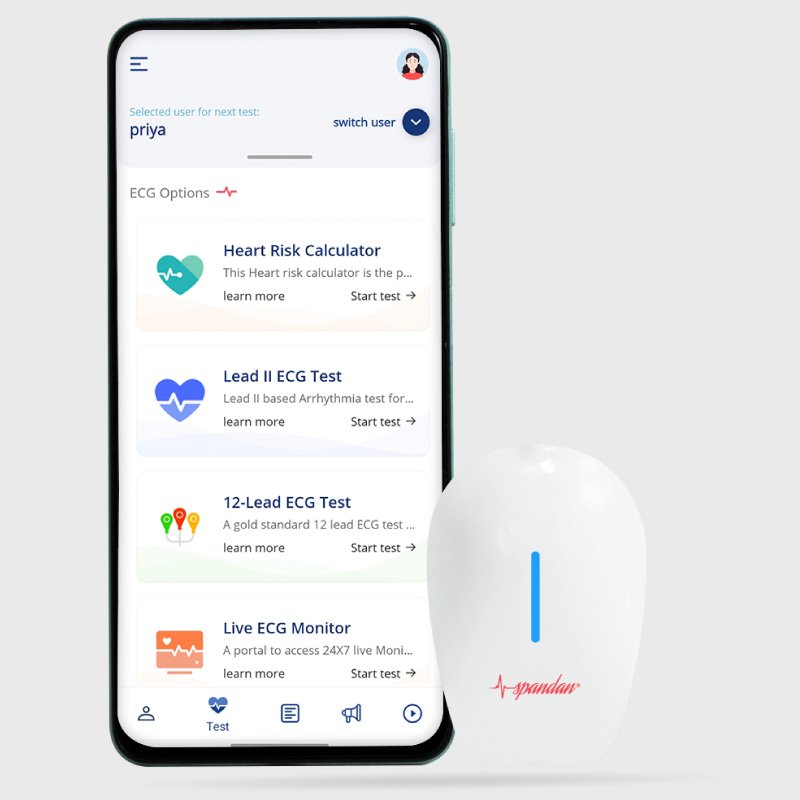
Author:- Mr. Ritesh Sharma
Everyone must have experienced an elevated heart rate once in their lifetime. So, this makes them wonder which hormone increases heart rate. Heart rate is one mystical aspect of cardiac care. An average human being tends to have a heart rate ranging between 60 to 100 beats per minute. In other words, the human heart contracts and relaxes 60 to 100 times in a minute. While this is the normal heart rate of a human, in many cases, it tends to go higher than this limit. A heart rate exceeding the normal range of 100 BPM is characterized by an arrhythmia of arrhythmia classification tachycardia.
On the other hand, a heart going lower than the normal range of 60 BPM is characterized by a cardiac arrhythmia called bradycardia. While these arrhythmias are an integral part of a human’s life with exercise-induced tachycardia enhancing the cardiovascular system and nocturnal bradycardia providing relaxation to the human body, their study is a fascinating subject.
Hence, if you have ever wondered which hormone increases heart rate then you will find the answer to this question through ample insights through this blog. So, dive into the world of cardiology and find out the reason for your heart palpitations.
Which hormone increases heart rate?
In a nutshell, epinephrine, produced by the adrenal glands is the hormone responsible for your elevated heart rate in a normal scenario. This is an important hormone involved in the body’s fight-or-flight response. The impact of this organ is on the body’s various organs and tissues. Moreover, it primes the body for heightened physical activity and increased alertness in response to perceived threats. One of the major effects of this hormone is the increase in the heart rate. It is responsible for the modulation of the heart rate at the time of need. Hence, there is a rapid increase in the cardiac activity of the body when needed.
Epinephrine Receptors in the Heart
There are several receptors in the human heart. However, there are beta-1 adrenergic receptors, which are specifically targeted by epinephrine. The location of these receptors is the cardiac muscle cells. These are mostly found in the sinoatrial node i.e. the natural pacemaker of the human heart. Upon binding of epinephrine to beta-1 adrenergic receptors, a series of events is initiated, ultimately combining and resulting in an increase in heart rate.
Intracellular Signaling Pathways
The combining of epinephrine to beta-1 adrenergic receptors triggers a G protein-mediated signaling cascade within cardiac muscle cells. There are certain events involved in this cascade. This includes the activation of adenylate cyclase, an enzyme responsible for converting adenosine triphosphate (ATP) into cyclic adenosine monophosphate (cAMP). The increased levels of cAMP are the second messengers. This triggers a series of phosphorylation events. This results in the increase of the activity of ion channels involved in cardiac depolarization.
Effects on Cardiac Electrophysiology
The effects of epinephrine are illustrated in the heart rate primarily through its impact on the electrical properties of the cardiac cells. By enhancing the activity of ion channels responsible for depolarization, such as the funny current (If) carried by HCN channels, epinephrine accelerates the rate at which the SA node generates action potentials. This results in a more rapid initiation of cardiac contractions, leading to an increased heart rate.
Apart from this, epinephrine also increases the conduction velocity of the electrical impulses that are generated within the heart. This facilitates the sudden and fast spread of excitation from the sinoatrial node to the other regions of the myocardium. Due to this, there is a synchronous and coordinated contraction of the atria and ventricles. Hence, the demand for heightened cardiac output during various periods is fulfilled.
Integration with Autonomic Nervous System
The epinephrine is intricately connected to the autonomic nervous system. In particular, the hormone’s effect on the heart rate is related to the sympathetic branch. Sympathetic nerve fibers release neurotransmitters such as norepinephrine, which acts in concert with circulating epinephrine to amplify the cardiac response to stress or stimulation.
In addition to this, the regulation of heart rate by epinephrine is delicately balanced by parasympathetic inputs. The parasympathetic inputs are mediated by the vagus nerve. Acetylcholine, released by parasympathetic nerve endings, opposes the actions of epinephrine by activating muscarinic receptors in the heart, leading to a reduction in heart rate via mechanisms such as hyperpolarization of SA node cells and slowing of conduction through the atrioventricular node.
Clinical Implications
There are certain clinical implications of the epinephrine that healthcare professionals need to understand. If there are abnormalities in epinephrine, then the excessive release of the hormone can contribute to pathological conditions such as tachycardia, which is a dangerous cardiac arrhythmia showcased by an abnormal ECG.
Furthermore, there are conditions, such as pheochromocytoma (a rare tumor of the adrenal glands). This can lead to the excessive production of catecholamines, including epinephrine. The result of this is persistent hypertension (high blood pressure) and palpitations, due to excessive stimulation of beta-adrenergic receptors in the heart.
At the same time, medications that target beta-adrenergic receptors, such as beta-blockers, are commonly prescribed to manage conditions such as hypertension and arrhythmias by antagonizing the effects of epinephrine and reducing heart rate.
In conclusion, the answer to the question of which hormone increases heart rate is simple; it is epinephrine. The hormone is of pivotal importance in regulating the heart rate in the human body. During the period of heightened demand, the hormone increases the heart rate as per the needs of the body. This hormone is essential to study for both pathological and normal cardiovascular conditions. The study of this hormone gives us worthy insights into the intricacies of cardiac care.



